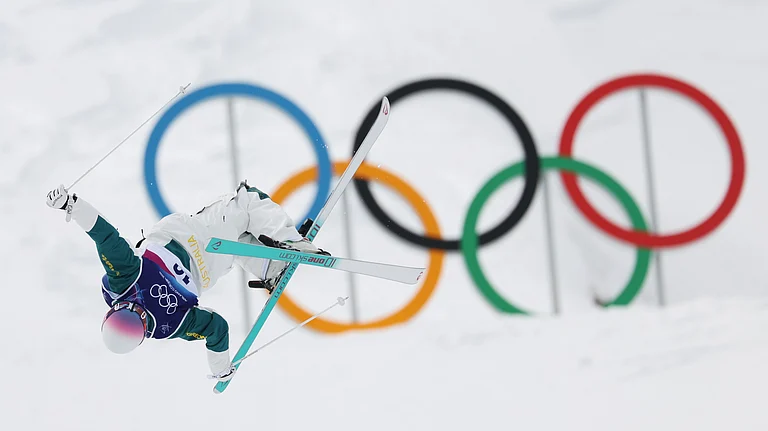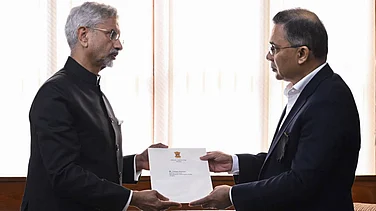In the latest instalment of Indian assistance to Sri Lanka, India on Sunday handed more than 44,000 metric tonnes of urea under a credit to the crisis-hit country.
The urea delivery is part of New Delhi’s ongoing efforts to support Sri Lankan farmers and help bolster bilateral cooperation for food security, said the Indian High Commission in Colombo.
Indian High Commissioner to Sri Lanka Gopal Baglay met Agriculture Minister Mahinda Amaraweera to inform him about the arrival of more than 44,000 metric tonnes of urea.
"High Commissioner stressed that this latest assistance by India symbolises India's continued commitment to support the people of Sri Lanka, including Sri Lanka's farmers, and bolster the efforts for food security of the country's citizens," said the Indian High Commission in a tweet.
In June, Amaraweera had met Baglay and sought India's help for food security and environmental protection in the island nation as it faces the worst economic crisis in its history, which has led to severe shortage of essentials like cooking gas, vehicular fuel, edibles, thermal fuel for electricity, etc.
In May, India assured Sri Lanka to immediately supply 65,000 metric tonnes of urea to avoid any disruption to the current Yala cultivation season in Sri Lanka. Yala is the season of paddy cultivation in Sri Lanka that lasts between May and August.
President Gotabaya Rajapaksa's decision last year to ban chemical fertiliser imports in order to turn into a green economy has caused a food shortage with crop losses amounting to 50 per cent. The food shortage, coupled with skyrocketing prices in recent months, have caused grave difficulties to Sri Lankan people.
Sri Lanka is facing an acute foreign currency crisis that has resulted in foreign debt default. It announced in April that it is suspending nearly $7 billion foreign debt repayment due for this year out of about $25 billion due through 2026. Sri Lanka's total foreign debt stands at USD 51 billion.
The lack of foreign exchange means the country cannot import essentials easily as well.
Gotabaya had admitted his decision to ban chemical fertilisers to go 100 per cent organic was wrong.
Agriculturists have warned that Sri Lanka may encounter a food shortage by mid-August in the ongoing economic crisis.
India has committed more than $3 billion to debt-ridden Sri Lanka in loans, credit lines, and credit swaps since January. Sri Lanka's annual fertiliser imports cost $400 million.
"It may be recalled that in line with its 'Neighbourhood First' policy and as an earnest friend and partner of Sri Lanka, India has extended multi-pronged assistance to the people of Sri Lanka in the last few months," the Indian High Commission said.
The support from India ranges from economic assistance of close to $3.5 billion to helping secure Sri Lanka's food, health, and energy security by supplying essential items like food, medicines, fuel, kerosene and other essentials.
The consignment of urea comes after Gotabaya offered to resign on July 13, after thousands of protesters stormed his official residence on Saturday, blaming his government for an unprecedented economic crisis that has brought the country to its knees.
Prime Minister Ranil Wickremesinghe on Saturday announced he would resign in favour of an all-party government. Despite the announcement, a mob set his private residence in Colombo on fire.
Anticipating massive protests on Saturday, Gotabaya left his residence on Friday his whereabouts are since unknown.
(With PTI inputs)


























